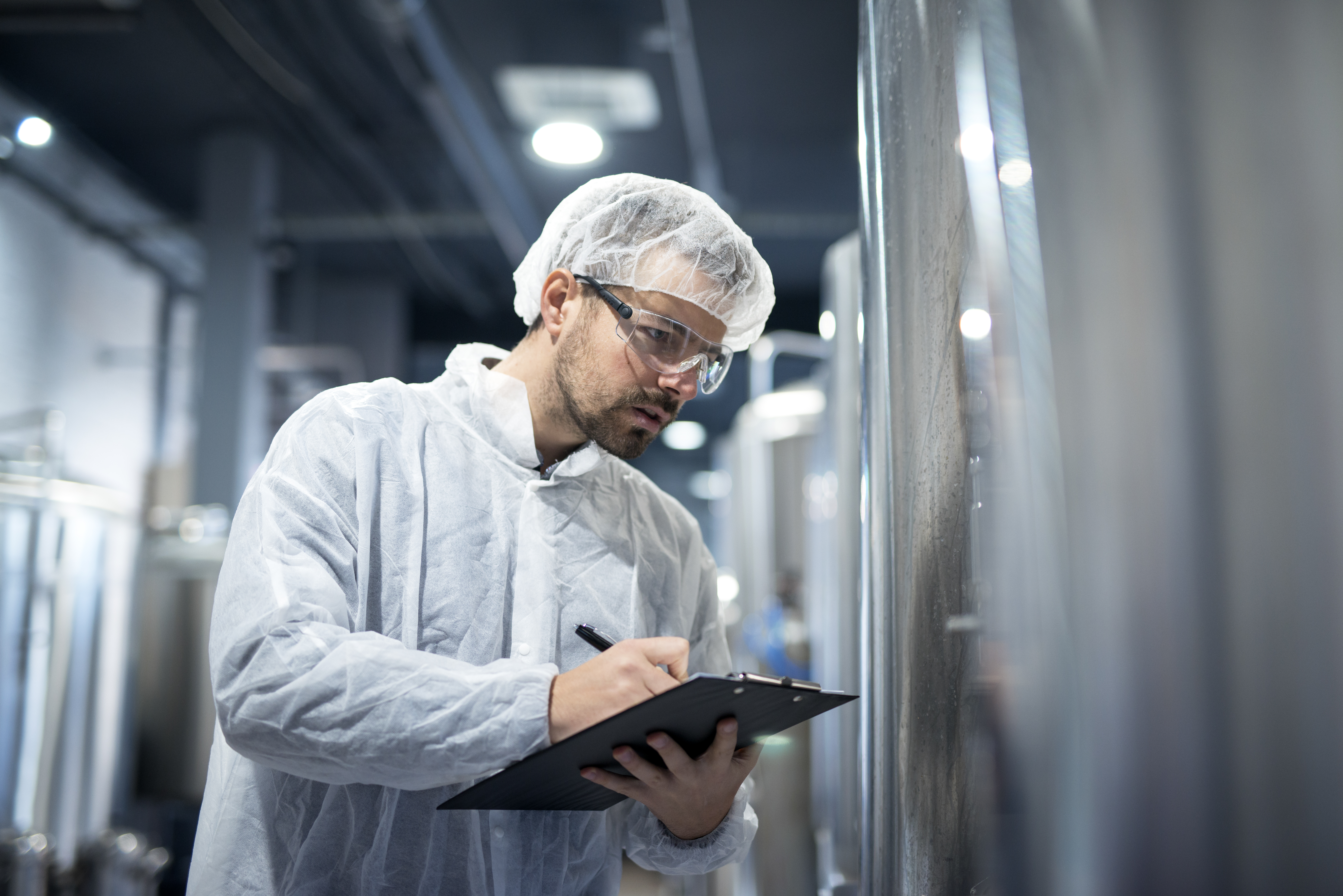
Gone are the days when bulky, inefficient freezers buzzed away in the back of restaurants and supermarkets. The commercial refrigeration industry is undergoing a remarkable transformation, shifting towards more refined, intelligent, and environmentally friendly cooling solutions. These modern advancements aren’t just about sleek designs—they’re about sustainability, efficiency, and the future of food preservation.
In this post, we delve into the latest commercial refrigeration technologies that are set to shape the future. Whether you’re running a restaurant, managing a grocery store, or simply intrigued by the innovations that keep our food fresh, you’re in the right place. We’re about to explore the trends and breakthroughs that are redefining the standards of commercial freezing.
But before we dive deeper, let’s establish a baseline understanding of what commercial refrigeration encompasses. From its vital role in various industries to the cutting-edge solutions emerging on the scene, we’ll cover all you need to know to navigate the evolving landscape of commercial refrigeration.
Prepare to journey through the developments in refrigeration technology as we uncover the latest in eco-friendly, energy-saving, and smart cooling solutions that promise to enhance how we store and preserve food in the food service industry and beyond.
Table of Contents
What is a Commercial Refrigerator & Freezer?
The commercial refrigerator and freezer are at the heart of countless sectors—from bustling restaurants and busy supermarkets to nurseries and hospitals. These aren’t your average kitchen appliances. Designed to meet the rigorous demands of professional environments, commercial refrigeration units are the unsung heroes in preserving perishable goods under optimal conditions.
Larger and more robust than their household counterparts, commercial refrigerators and freezers play a pivotal role in food safety and quality. They operate within precise temperature ranges: refrigerators work to keep items cool between 0° to 5°C (32° – 41°F), ideal for dairy, fruits, vegetables, and beverages. On the other hand, freezers maintain temperatures around -18°C (0°F) or lower, essential for long-term storage of frozen goods like meats, fish, and ice cream.
The needs of a business dictate the type of refrigeration solution it requires. From spacious walk-in units that accommodate bulk storage to convenient reach-in models for easy access and even specialized display cases that showcase products while keeping them fresh, there’s a diverse array of designs to suit every operational demand. Some are built for the rigours of heavy-duty use, while others feature adjustable shelving to maximize storage space efficiently.
Commercial refrigeration is more than just cooling—it’s about ensuring food safety, maintaining product quality, and enabling businesses to run smoothly and efficiently. Whether it’s a restaurant striving to serve fresh meals, a supermarket aiming to keep produce crisp, or a hospital ensuring the nutritional intake of its patients, the right commercial refrigeration setup is crucial for success.
When is the Right Time to Upgrade Commercial Refrigeration
Deciding when to invest in a new commercial refrigeration system can be pivotal for your business. Recognizing the signs that your current setup might be due for an upgrade is vital to maintaining efficiency, quality, and cost-effectiveness. Here’s what to look out for:
- Frequent Breakdowns: The costs can quickly add up if you’re constantly calling for repairs. In such cases, investing in a new system could be more economical in the long run.
- Quality Issues with Products: Do you notice your food items aren’t staying as fresh as they should, or are spoilage rates climbing? This could indicate that your unit isn’t maintaining the necessary consistent temperatures.
- Business Growth: Are you planning to expand or already dealing with increased inventory? Your existing refrigeration might not be able to keep up with the demand.
- Out-of-Date Technology: Older models may not offer the energy efficiency or advanced features of modern systems, leading to missed potential savings and operational improvements.
- Temperature Inconsistency: Finding spots in your fridge that are too warm or too cool? This is a classic sign that your equipment is struggling to distribute air properly.
- Rising Energy Bills: An unexpected hike in energy costs can suggest your refrigeration system is working harder than it should, pointing towards inefficiency.
It’s important to remember that these signs can vary across different industries. For example, restaurants must adhere to strict food safety standards, pharmaceutical companies require precise storage conditions, and retailers can’t afford to lose customers over inadequate refrigeration. Regular checks and consultations with refrigeration experts can help ensure your business continues to operate smoothly and that you make the best decision for your refrigeration needs.
The Latest Commercial Refrigeration Tech in 2024
As we progress into 2024, commercial refrigeration is hitting new heights with technology that’s making systems smarter, greener, and more efficient. Let’s dive into some of the latest innovations shaping the industry:
- Smart Refrigeration Systems: Thanks to the Internet of Things (IoT), the days of constantly checking your cooling units are gone. These new smart systems come with sensors that link up to a central hub, allowing you to adjust temperatures, get alerts if something goes wrong, and keep an eye on how much energy you’re using—all from your smartphone or computer. This means fewer surprises, less downtime, and lower energy bills.
- Green Cooling Solutions: With a growing focus on taking care of our planet, the move towards eco-friendly refrigerants is picking up speed. New cooling systems use substances that are kinder to the environment, like hydrocarbon-based refrigerants and natural alternatives like CO2, replacing the old, harmful ones. Plus, they’re finding smart ways to reuse the heat that refrigeration systems create, further cutting down on energy use.
- Thermal Energy Storage (TES): TES is like putting the cold in a savings account for when you really need it. When electricity is in high demand (and more expensive), these systems use stored-up cold energy to keep things cool, easing the strain on the power grid and saving money on energy costs.
- Predictive Maintenance through AI: Artificial Intelligence (AI) is changing the game by predicting when your refrigeration system might need a tune-up before it breaks down. By analyzing data from the system’s sensors and past performance, AI can alert you to potential issues early on. This means you can fix minor problems before they become big ones, keeping your system running smoothly and extending its life.
- Energy Recovery Ventilation (ERV): ERV systems ensure that bringing fresh air into a space doesn’t waste energy. They recycle the energy from the outgoing air to pre-cool or pre-heat the incoming air, reducing the workload on your refrigeration system. This saves energy and keeps the indoor climate more comfortable and controlled.
These innovations are setting the stage for a future in which commercial refrigeration is not just about keeping things cold but also about doing so in a smarter, more sustainable, and cost-effective way.
Benefits of Keeping Your Commercial Refrigeration Systems Up-to-Date
Staying current with your commercial refrigeration technology isn’t just about following trends; it’s a strategic move that brings tangible benefits to your business. Here’s why updating your cooling equipment is a smart choice:
- Enhanced Food Safety: Modern refrigerators excel at maintaining consistent temperatures, which is crucial for preventing foodborne illnesses. Older models might struggle with this, potentially leading to harmful bacteria growth. The latest systems, equipped with advanced temperature control technologies, ensure your food is stored safely, protecting your customers’ health.
- Improved Food Quality: Freshness is key in the food industry, and outdated refrigerators may fail at keeping the right humidity levels, resulting in wilted veggies and dry meats. Newer cooling solutions come with better humidity controls, keeping your food looking and tasting fresh.
- Reduced Food Waste: Old, inefficient refrigerators can lead to more spoiled food, costing your business money. Modern units with precise temperature controls help reduce spoilage, allowing you to save on costs and reduce waste.
- Energy Efficiency: The latest refrigeration models are designed to use less energy, thanks to features like improved insulation and variable-speed compressors. This means lower energy bills and more savings for your business.
- Lower Maintenance Costs: While all equipment requires maintenance, older refrigeration systems may need repairs more frequently. Newer models are built to last longer and require less servicing, saving you time and money on maintenance.
- Eco-Friendly Operations: Your business can reduce its carbon footprint by using energy-efficient refrigeration systems. This helps the environment and aligns your brand with sustainability efforts.
- Longer Lifespan: Thanks to better materials and construction techniques, new refrigeration systems tend to have a longer lifespan than older ones, reducing the need for frequent replacements.
- Increased Capacity and Features: Modern refrigerators often offer more storage space and useful features like self-defrosting mechanisms and digital temperature displays, making your operations more efficient.
- Regulatory Compliance: Keeping up with the latest refrigeration models ensures you meet health and safety regulations, helping you avoid fines and keep your business running smoothly.
- Peace of Mind: Knowing you have a reliable, efficient refrigeration system gives you the confidence that your products are stored safely, allowing you to focus on other aspects of your business.
Updating your commercial refrigeration equipment is an investment in your business’s efficiency, compliance, and bottom line. Technological advances not only save you money and protect your products but also contribute to a healthier planet and happier customers.
The Future is Cool: Embracing Next-Generation Commercial Refrigeration
The evolution of commercial refrigeration marks a leap into an era where technology meets sustainability, transforming not just how we preserve food but also our approach to energy consumption and environmental responsibility. With innovations like intelligent temperature control, self-cleaning mechanisms, and waste heat recovery, the industry is setting new standards for freshness, safety, and eco-friendliness.
As we move forward, the importance of staying updated with these advancements cannot be overstated. Upgrading your commercial refrigeration systems is not just a step towards better efficiency and cost savings; it’s a move towards a more sustainable and responsible business model that prioritizes customer health and environmental care.
Don’t let your business be left behind in the cold. Explore the latest in commercial refrigeration technology today and take the first step towards a cooler, greener future. Whether you’re looking to enhance food safety, reduce waste, or cut down on energy costs, the newest innovations in the industry have you covered.
Ready to upgrade your refrigeration system? Contact Ancaster’s refrigeration experts to discover how the latest technologies can benefit your business and help you stay ahead in a rapidly evolving market. The future of commercial fridge is here, and it’s time to embrace it.
Call now!

